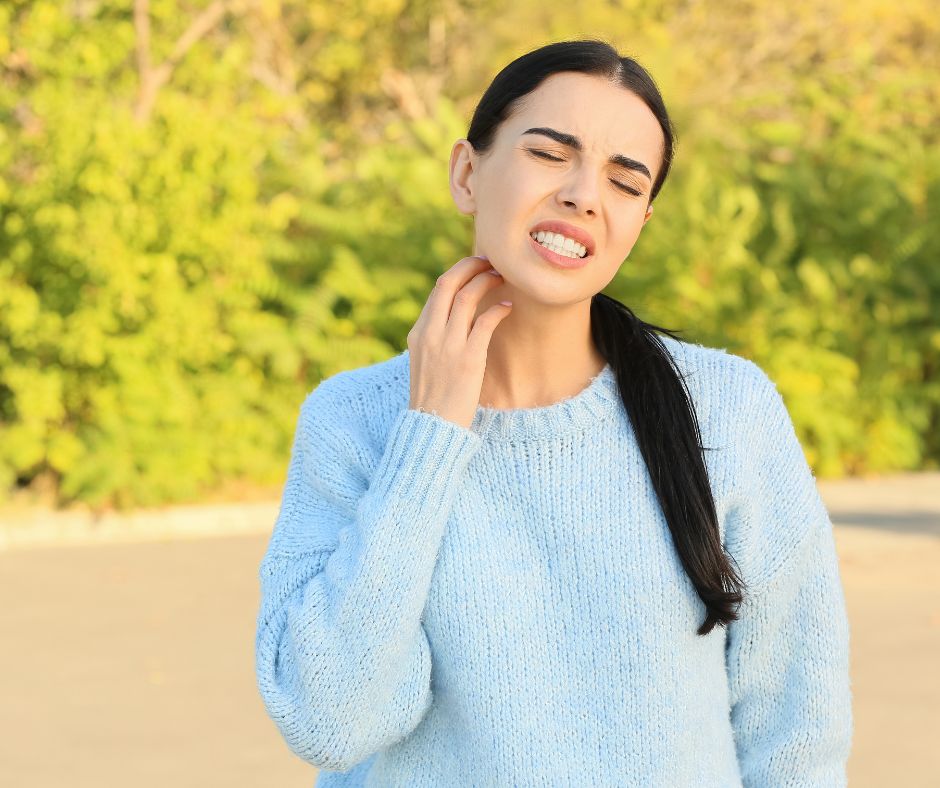There are a few guarantees in life: summer heat makes you sweat, late-night coffee leaves you restless, too much water wrinkles your skin. But when it comes to seasonal allergies, predictability goes out the window. While we all know the classic signs and symptoms – hello, sneezes and sniffles – sometimes allergies manifest in ways that can make you scratch your head, or your skin, more than usual. To help you recognize and manage those pesky allergy symptoms, here are some less common reactions that can pop up when the seasons shift.
What are Seasonal Allergies?
Imagine your body as a somewhat overzealous security system. It’s supposed to protect you, but sometimes it goes a little overboard at the slightest hint of trouble—like that time your car alarm went off because a leaf fell on the hood. That’s kind of how allergies operate. Your immune system mistakes a normally harmless substance like pollen or mold for a dangerous invader and launches an aggressive attack. The chemicals produced during this process create those irritating issues like sneezing, runny nose, and itchy eyes.
Uncommon Seasonal Allergy Symptoms
- Rashes and Eczema
Most people think of allergies as something inside of the body, but symptoms can also affect the skin. Hives, itchy patches, and even eczema (or atopic dermatitis) can all be a sign of seasonal allergies. When allergens like pollen or pet dander trigger a response, your immune system can signal skin cells to go into defense mode. This can lead to inflammation, irritation, and other unwanted skin symptoms. It’s like your skin is putting on armor, but instead of looking cool, it just ends up being super itchy.
Eczema is most common in children, especially those with parents who have allergies or asthma. Common triggers of this condition include environmental allergens, perfumes, soaps, and dry air.
- Conjunctivitis
That case of pink eye may actually be an allergy symptom. Allergens that drift into your eyes can cause irritation, leading to allergic conjunctivitis. This can present as redness, intense itching, puffiness and discomfort that’s easily mistaken for a viral or bacterial infection. Learn how to spot the difference in our blog.
- Muscle Pain
Ever felt sore for no reason? Allergens can stimulate an inflammatory response in your body that affects your muscles, too. It’s like sending your immune system to the gym; it works out too hard trying to combat allergens and leaves you feeling sore and stiff. OTC medications like tylenol or ibuprofen can help manage muscle pain due to allergies.
- Mood Changes
Allergies can make you moody, and it’s not just because it’s annoying to sneeze every five seconds. The constant internal battle against allergens can drain your energy, disrupt your sleep, and leave you feeling like you’re on an emotional seesaw. Recent studies have also revealed a direct link between allergies and mood disorders like anxiety and depression. Other mental symptoms can include trouble concentrating, memory problems, brain fog and grogginess.
- Sleep Issues
Speaking of sleep, allergies can steal it. When you’re trying to snooze, your body’s reaction to allergens can keep you awake with symptoms like coughing, sneezing, or a runny nose. Nasal congestion and inflammation can also cause snoring and increase the risk of sleep apnea. If allergies are making sleep a struggle, try using an air purifier and taking your allergy medication at night for targeted relief.
Take Control of Seasonal Allergies with America’s Best Care Plus
Ready to kick those bizarre allergy symptoms to the curb? Visit America’s Best Care Plus to learn more about how our sublingual allergy drops can offer lasting relief from both food and environmental allergies. Our compounded sublingual allergy drops are designed to teach your immune system to chill out and handle allergens without going overboard. No more itchy skin, watery eyes, or unexpected aches – all with just a few drops under your tongue each day. Contact us to learn more.

